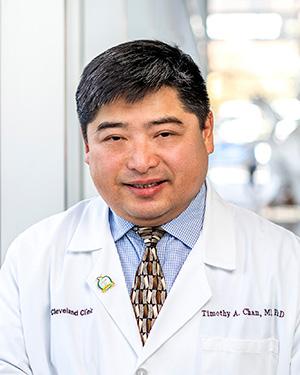Research News
10/14/2020
Cleveland Clinic Joins Multi-site Study and International Network to Study Parkinson’s Disease
Dr. Chan will serve as the core investigator at Cleveland Clinic, one of four institutions working together as part of this collaborative study funded through Aligning Science Across Parkinson’s.

Cleveland Clinic has been named as one of four institutions of a new consortium grant from the Aligning Science Across Parkinson's (ASAP) initiative to investigate the association between Parkinson's disease and immunity. The multi-site consortium will be led by researchers at Massachusetts General Hospital / Harvard Medical School and also includes those from the University of Houston and MD Anderson Cancer Center at the University of Texas.
With this new award, the team of researchers, including Timothy Chan, MD, PhD, the core investigator at Cleveland Clinic, will study how mutations in the genes LRKK2 and Parkin may cause immune dysfunction that leads to Parkinson's disease. Dr. Chan, who leads Cleveland Clinic's Center for Immunotherapy and Precision Immuno-Oncology said, "These projects will provide important molecular insights into possible new targets for treating Parkinson's disease, but will also help inform whether immunotherapies originally developed for treating cancer may have application in patients with Parkinson's, as well."
Parkinson's disease is characterized by uncontrollable neuron damage or death, primarily related to neurons that produce dopamine (called dopaminergic neurons). Aberrant immunity plays a major role in the disease's pathogenesis. Loss of nerve cells and neuronal connectivity in the area of the brain that controls movement ultimately results in the symptoms common of the disease.
The researchers will study in various preclinical models how dopaminergic neuron behavior and immune responses are modulated by mutations in the LRRK2 and Parkin genes, both of which are also linked to certain cancers. They will also collect samples, including serum and cerebrospinal fluid, from Parkinson's patients with and without LRKK2 mutations. By comparing these together, they hope to identify immune and dopaminergic neuron traits that may be linked to the Parkinson's- and cancer-associated genes and could be used as early predictive biomarkers and targets for immunotherapy and other treatments.
"We are excited to be joining the other institutions as partners in this important research," said Dr. Chan. "Considering that immunotherapies are emerging for many types of diseases, we think this project into defining the role of the immune response in Parkinson's disease is very timely."
While all consortium members will collaborate closely, core investigators from each institution will lead various subprojects. Dr. Chan will oversee the Parkin-focused research.
An exciting milestone, this is one of the first large consortium grants to go to researchers from the Center for Immunotherapy and Precision Immuno-Oncology, which just launched at Cleveland Clinic earlier this year. The grant was issued by ASAP's implementation partner The Michael J. Fox Foundation for Parkinson's Research.
Featured Experts
News Category
Related News
Research areas
Want To Support Ground-Breaking Research at Cleveland Clinic?
Discover how you can help Cleveland Clinic save lives and continue to lead the transformation of healthcare.
Give to Cleveland Clinic